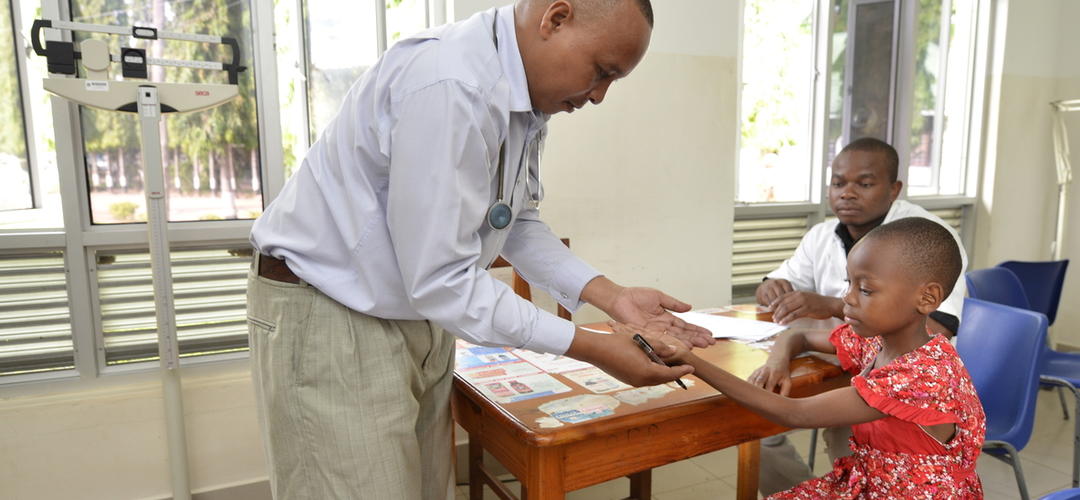

The role of subnational revenue raising for public service delivery
To raise awareness on the roles of local governments’ in raising domestic revenue for public service delivery, the Addis Tax Initiative (ATI), the Development Partners Network on Decentralisation & Local Governance (DeLoG) and the Norwegian Agency for Development Cooperation (Norad) invited participants from all over the world to join in a frank and open discussion on 15 April 2021.
As first part of a webinar series on local governments' role in raising domestic revenue mobilisation (DRM) for public service delivery, the webinar focused on various aspects, benefits and challenges of DRM reforms at the subnational level. The speakers introduced interesting case studies from different cities and regions and gave an overview of current research in the field. Participants and speakers alike highlighted various aspects that will be taken up during the first webinar of this webinar series on subnational DRM for public service delivery.
“Tax is not an end but is a means towards a well-functioning state.”
The webinar was kicked off with a keynote input by Odd-Helge Fjeldstad, Economist and Research Professor at Christian Michelsen Institute, who gave an overview on the research about local government taxation and DRM, and their impact on state-building. He highlighted the reasons why subnational taxation can play a fundamental role in citizen participation and trust for the government. Furthermore, he analysed the necessary preconditions for functioning fiscal decentralisation and DRM. Odd-Helge Fjeldstad has recently co-published the book "Taxing Africa - Coercion, Reform and Development". For more information, please click here.
"Tension between administrative efficiency and fiscal decentralisation efforts is a key challenge to overcome."
Edward Abrokwah, Head of Research and Natural Resource Desk at the Tax Policy Unit of the Ministry of Finance in Ghana, presented Ghana's experiences on exploring the opportunities and challenges deriving from national and local governments collaborating on subnational public revenues. He specifically discussed property taxes’ collection in Ghana, outlining issues like manual collection of data and the lack of technology to improve revenue mobilisation.
"We need an inclusive and Intergrated approach to urban development."
Rosetta Wilson, Financial Management Advisor at the Mayors Delivery Unit for Revenue Mobilisation of Freetown, talked about how Sierra Leone’s capital is using its urban transformation agenda, “Transform Freetown” to face numerous challenges like rapid population growth, informal settlements and high pressure on public services. The urban agenda is creating a resilient and sustainable city through increasing revenue using property taxes and rate digitisation. On an end note, she highlighted the lessons learnt from Freetown’s experience. The following discussion focused on how the Agenda is financed and how much of the budget comes from revenue.
“Local governance and tax community are not engaging each other enough.”
Toril-Iren Pedersen, Policy Director of Tax for Development at Norad, discussed the opportunities and challenges of integrated and multi-level government responses to public revenue generation. She highlighted the strengthend focus of the ATI Declaration 2025 on subnational revenue regeneration, accountable stakeholders and the social contract. She gave Norad’s perspective on the untapped potential of local taxation for mobilising domestic revenue and the linkages between different levels of government. Among others, she emphasised looking for sources of revenue generation that have lower chances of being conflict drivers in fragile contexts.
“Local government revenue is not a zero-sum game."
Dmitry Pozhidaev, Global Advisor for Local Government and Head of Office Uganda for the United Nations Capital Development Fund (UNCDF), wrapped up the different perspectives given during the webinar. He discussed the challenges of collaboration between different levels of government, the importance of efficient tax administration systems, the composition of the fiscal revenue space and revenue mobilisation at local level. “Local government revenue is not a zero-sum game. Without local governments being able to contribute to development, we will not be able to achieve the SDGs and the Agenda 2030”.
The large number of questions and feedback by the participants will serve as a basis for second part of the webinar series on DRM and public service delivery. For more information on the speakers and for the presentations, please click here.
Watch the recording now!